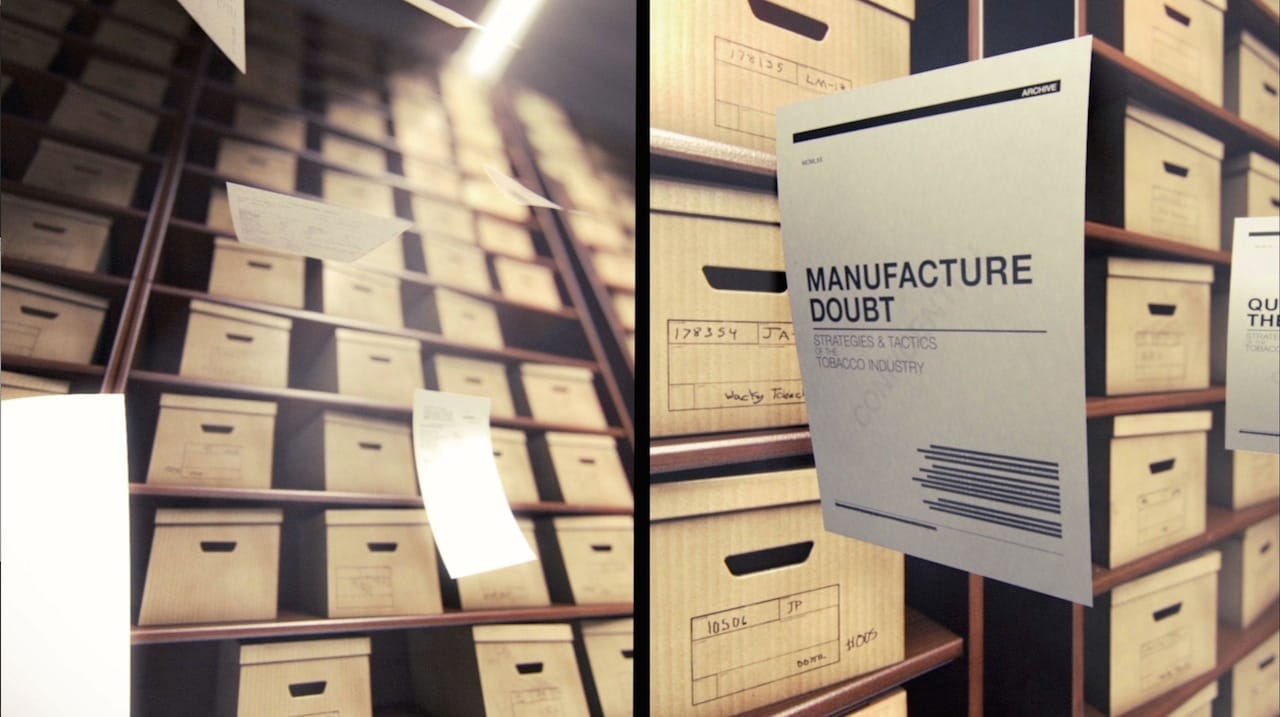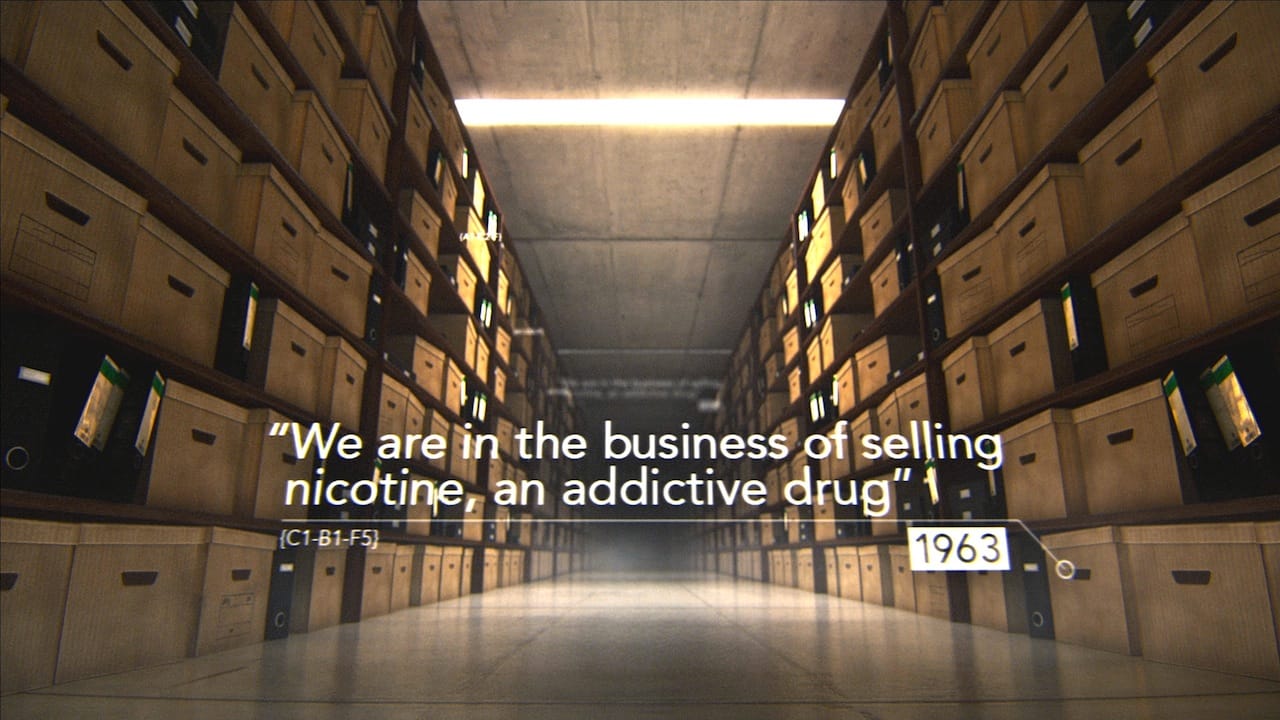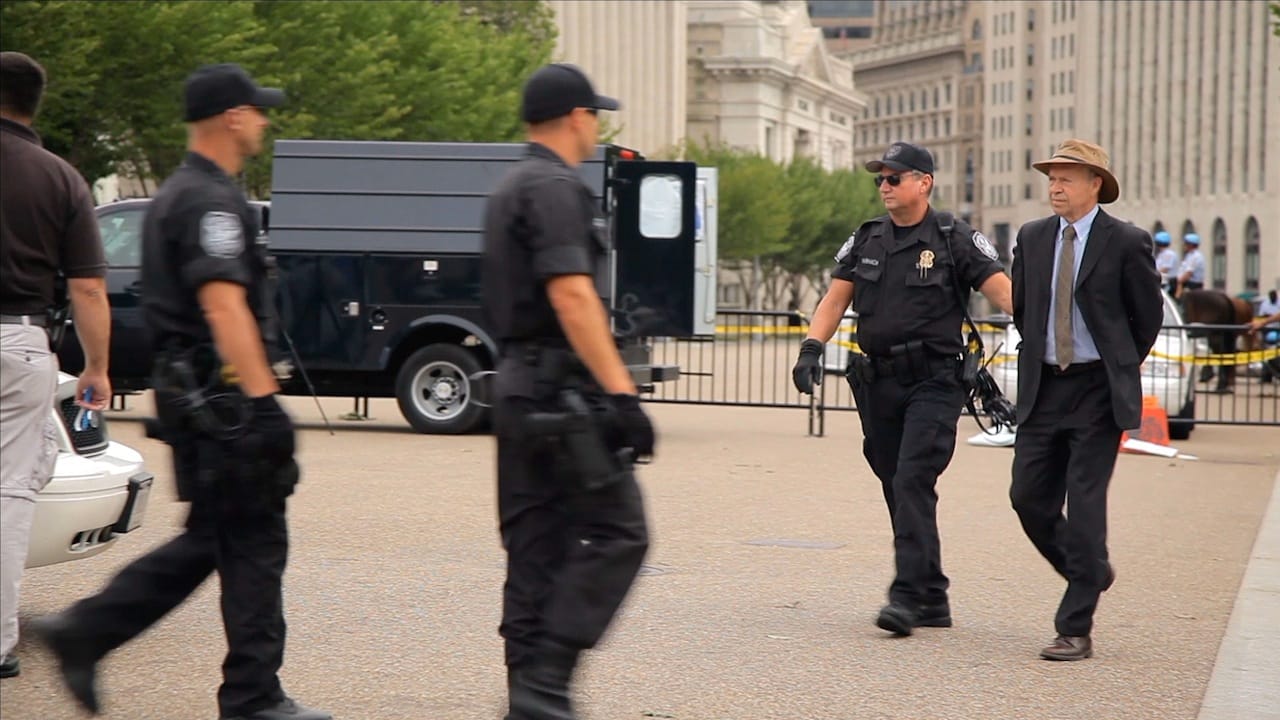The Men Who Manufacture Scientific Doubt
Merchants of Doubt, the latest documentary film by director Robert Kenner (Food, Inc., among others) uses a magician's sleight of hand as an allegory for the conning of the American public by a handful of corporate lobbyists and public-relations mercenaries.

Merchants of Doubt, the latest documentary film by director Robert Kenner (Food, Inc., among others), uses a magician’s sleight of hand as an allegory for the conning of the American public by a handful of corporate lobbyists and public-relations mercenaries. Magician Jamy Ian Swiss, the film’s most harmless conman, acts as an emcee explaining the basic tools of deception: manufacturing credible allies, creating distractions, using bits of truth to obfuscate larger realities. But the issues at stake are far more serious than levitating ladies or a disappearing queen of hearts. The companion film to Naomi Oreskes’s and Erik M. Conway’s 2010 book of the same name, Merchants chronicles the tactics — invented by big tobacco and currently unleashed on environmental advocates — used to counter scientific evidence that threatens the status quo of big business in the United States.

At the start of the film, Stanton Glantz, a scientist and longtime anti-smoking advocate, recaps the lies of big tobacco. Cigarette companies did their own research and as early as the 1950s knew of the harmful effects of smoking. To counter a potential anti-smoking legislative and public opinion revolution, tobacco companies hired public relations firms to introduce the idea of “doubt” — maybe cigarettes are harmful, maybe they’re not. This type of quasi-ontological proposition moves any debate beyond existing evidence; after all, there is a slim possibility that everything we think is true might not be.
Doubt is a potent concept in American culture; the basic premise of our justice system is that the prosecution must prove the accused guilty beyond reasonable doubt. The idea of scientific uncertainty presented by big tobacco was therefore easily spun out of proportion: Did researchers really account for all variables and look at large enough sample sizes? Even though smoking has caused cancer in some people, could it really be reasonably extrapolated that smoking causes cancer generally? This fog of doubt worked: the fight to pass meaningful legislation against tobacco companies took decades and is still ongoing.
Merchants shows how the same playbook of discrediting scientists and introducing faux-scientific uncertainty is now being used by climate change deniers. Scientist James Hansen, among others, reminds viewers that there’s essentially total consensus in the scientific community on the existence of man-made climate change. The film reveals that global warming skepticism is often propagated by people like Marc Morano, a lobbyist masquerading as a journalist whose website Climate Depot is financed from the coffers of billionaire conservative funder Richard Mellon Scaife. When interviewed, Morano is shockingly blunt and unremorseful about his tactics, including publishing the personal email addresses of climate scientists online, causing them to receive massive amounts of hate mail, including death threats. “You can’t be afraid of the absolute hand-to-hand combat, metaphorically,” he says. Morano makes Tim Phillips, head of the the Koch brothers’ Americans for Prosperity and another mercenary in the war against climate change legislation, seem like a pretty principled guy.

The film is strongest when telling the stories of global warming deniers who came to their senses, among them former Republican Congressman Bob Inglis. After a trip to Antarctica, Inglis changed his tune on climate change, leading to the loss of his congressional seat in 2010. In this way, Merchants also exposes the absolute madness of far-right American politics. The film showcases a conservative cast of characters split between people who naively, and/or disturbingly, believe in some myth of the “real ‘Murica” and the cynical operators of big business, whose concerns for American “freedom” are based on their ability to continue making heaps of money with absolutely no concern for public wellbeing. The far-right lobbyists and public relations yes-men are only too happy to give lip service to American working-class ideals when, ironically, they’ve sold their integrity for the very purpose of escaping the working class.
Kenner’s film seems to expect a mostly liberal audience, and it does not set out to convince viewers of the validity of climate change or even of the evil of lobbyists; it is, rather, investigative documentary at its best, presenting a behind-the-scenes story of the disgustingly self-serving machinations of politics, business, and media. Merchants clearly proves the continued use of a set of nefarious tactics to discredit scientists. Viewers may know of some of these methods and suspect others, but seeing them unified in one film is shocking.
Merchants of Doubt is currently playing at AMC Empire 25 (234 W 42nd Street, Times Square, Manhattan) and Village East Cinema (189 Second Ave, East Village, Manhattan) in New York, as well as other theaters around the country.




